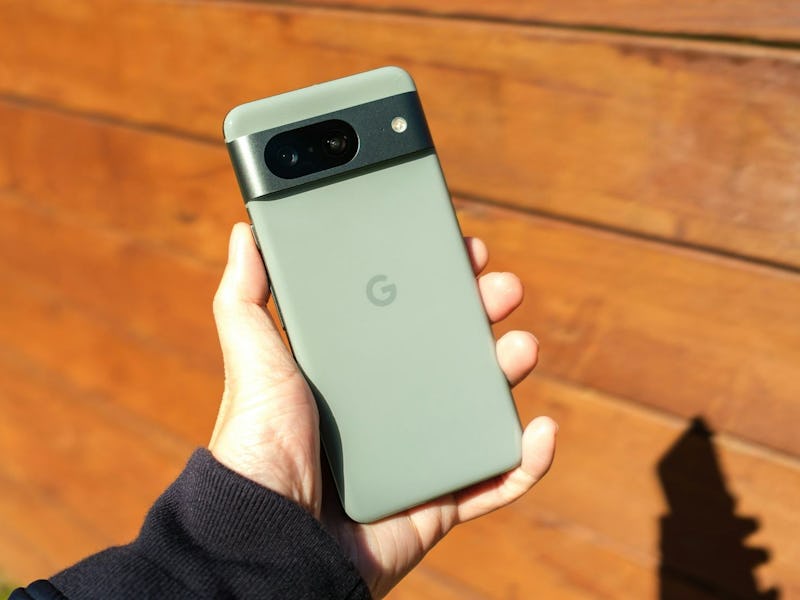The Pixel 9 Is Google’s Best Shot at Making an AI Phone That Matters
Google has been building towards an AI phone for years now, and the Google Pixel 9 could be make or break.

When it comes to AI in phones, arguably no other company has been as overt a proponent as Google.
For years now, Pixel phones have put AI front and center with features like the phone-based Photoshop competitor, Magic Eraser; the AI-enhancing Video Boost technology; Best Take, a feature that literally swaps your face on command to create the “best” possible group photo.
In introducing all of these flashy AI features, Google beat competitors like Samsung and Apple to the punch and laid the groundwork for what an AI-forward phone can and should do. It also managed to give Pixel devices features that no other phone maker was offering.
But things move fast, and with Apple Intelligence and Galaxy AI breathing down Google’s neck, the Pixel 9 (which will be announced on August 13) isn’t just another stepping stone, it’s shaping up to be a tipping point — a chance for Google to complete its vision, or else.
Pixel 9 and the Prime Time
You may have noticed things have been kind of hot in the world of AI right now. That has everything to do with OpenAI and ChatGPT, of course, but it also has increasingly more to do with how that technology can be implemented in everyone’s favorite device — the phone.
And when I say implemented, I don’t mean in a background sense, I mean as a defining feature. For Apple that’s Apple Intelligence, which generates photos, summarizes web pages, supercharges Siri, and much more. For Samsung, that’s Galaxy AI, which does a lot of those same things and a few novel ones.
For Google, that means... well, we don’t really have a name for it yet. As ambitious and auspicious as Google has been about its AI features, it’s, by the moment’s standards, still missing something — that something is a connective tissue to bind all of its features together. And what might that connective tissue be? Gemini, of course.
The Pixel 9 is the perfect opportunity to put Gemini’s skills to use. If Google’s AI features are the bricks for an AI phone, then think of Gemini like the mortar. Want to Magic Erase a photo? Let Gemini take the reins and do that for you. Want to summarize an email? Call on Gemini for some help. Too lazy to draft a text? Give that chore to Gemini. Connect all of that with different inputs — voice via Google Assistant, text, or heck, even preemptive prompts that offer to orchestrate actions before you even have time to think — and you’ve got a complete vision for an AI phone.
It’s time for Google to hammer its AI ambitions home.
What I’m saying is, if putting AI front and center is the name of the game, then there’s never been a better time for Gemini to shine.
Sure, there are risks to making a chatbot the centerpiece of your smartphone experience — Google’s AI search experiment hasn’t exactly gone swimmingly — but the stakes for Google’s foothold in the world of AI smartphones have never been higher. It’s time for Google to hammer its AI ambitions home.
The Raice Is On
Google may have a lead in the world of AI phones, but that can easily be squandered. Every company making phones is working on cracking the code of how to use Large Language Models (LLMs) in tandem with other AI to augment and transform the phone experience.
And it's not just Samsung and Apple — smaller players like Nothing, for example, also seem intent on taking risks with using AI to change and evolve their customized mobile operating system. This month, Nothing CEO, Carl Pei, said he wants the company to become the Nintendo of the tech world and that he envisions a “post-app” smartphone world.
The Pixel 8 leaned even harder into AI features, but the bar has been raised since its release.
That’s not exactly a novel vision, but it is one that tech companies seem to be trending toward, and no one has quite cracked the code yet. For a company like Google, that lack of a definitive, compelling AI phone experience is a huge opportunity. Google presumably knew this moment was coming (just last year it was already talking about how Google Assistant with Bard would change the game) and, if it wants to propel the Pixel into its logical future, it has to bring the pieces together.
That cohesive experience could involve a lot of things, but most importantly, it should make the act of using an AI phone (and a phone in general) easier and smarter. Call it what you will — Google’s next big step; an evolution; a new phase in its master plan — but to me, the analogy is obvious. Google needs to gather its wits, take a deep breath, and stick the landing on AI. Otherwise, someone is bound to do it first.